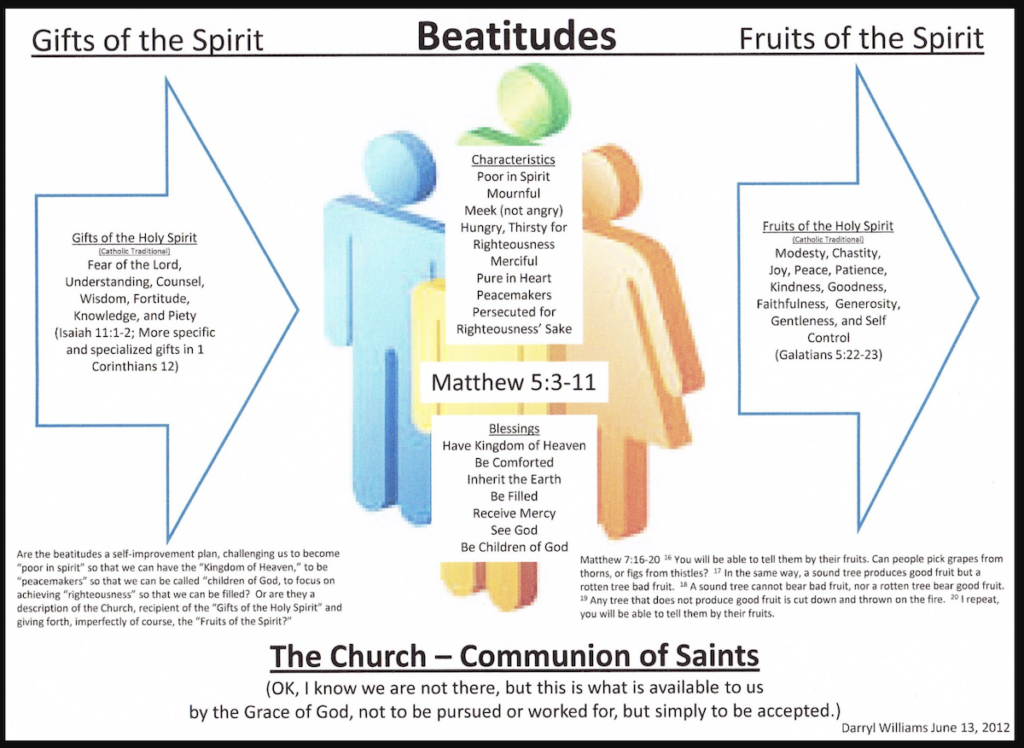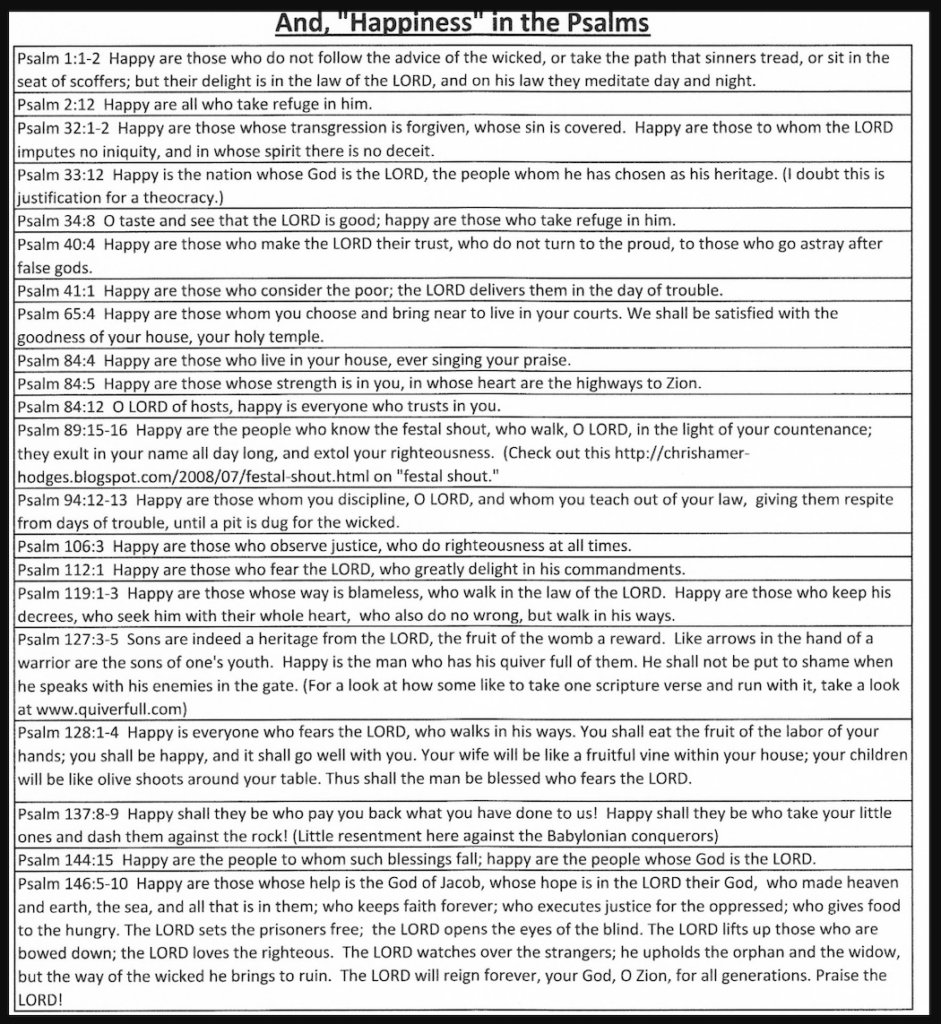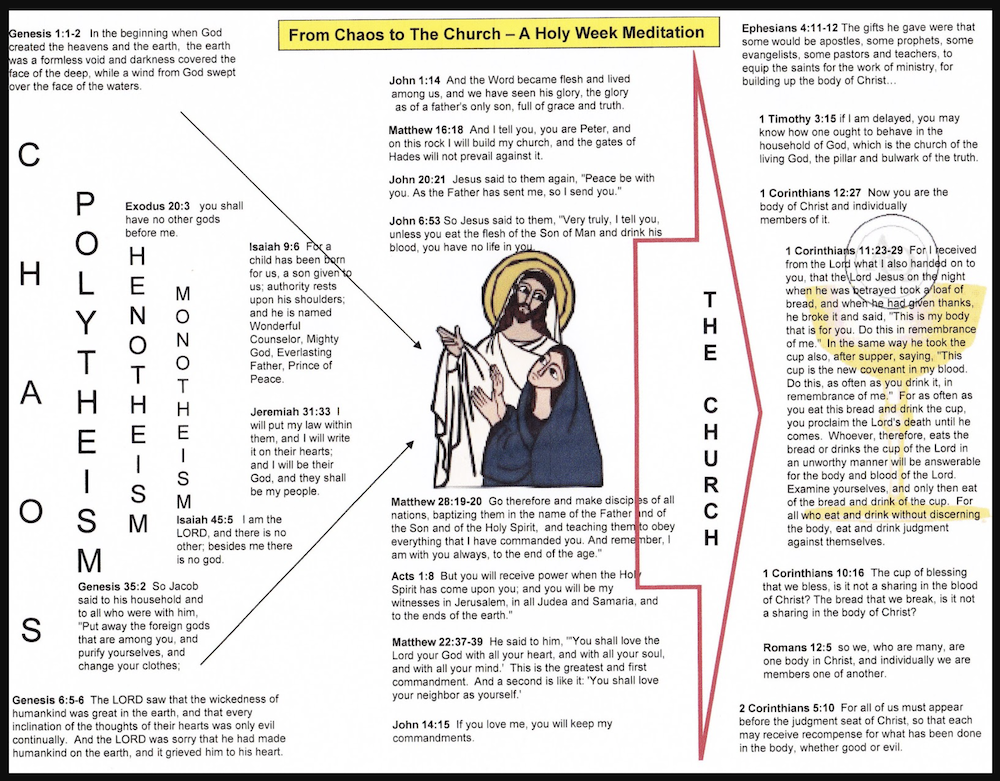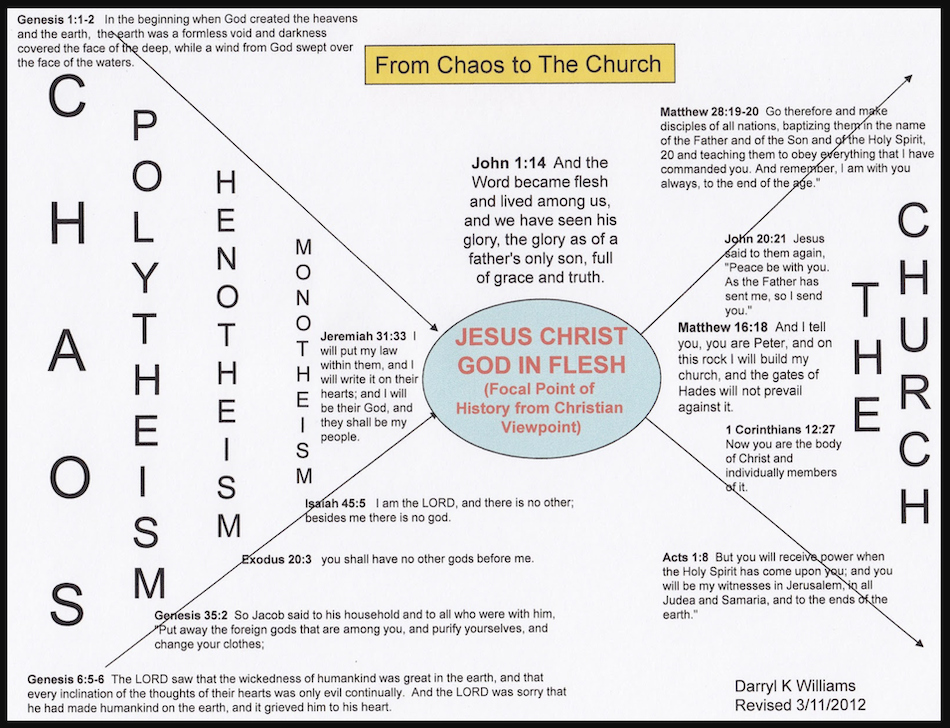If our power grids were to fail and our fuel supply chains were to be destroyed, we would, in just a few days, become a hunter gatherer society, foraging for food and drink, probably even without cash since the bank computers and ATM’s would be out of commission. We would stop obsessing about obesity, and we would learn what hunger really is, all due to failure of the fragile infrastructure we have created and come to depend upon to feed more than 300 million people. For a hint of what it would be like, just pay attention, next time there is a hurricane warning, to the speed with which store shelves are emptied of bread, milk, toilet paper, and wine, the essentials of American life.
Of course a few would have followed Glen Beck’s advice and stockpiled sealed containers of wheat or other such staples and would sit at home behind locked doors, blinds closed, armed, locked, and loaded, feeling smug and trying not to let their neighbors see how healthy they are, but that would not be sustainable. The supplies would run out or “cabin fever” would set in or thieves would break in and steal and all but employees of US Government Health and Human Services, which would be charged with confiscation and distribution of all available food and water, would end up hungry, though hopefully not starving. Expect lots of peanut butter.
All of which makes me think of the simple acts of giving thanks for or asking for blessing of our food.
I don’t recall our family, during my youth, having a consistent tradition of prayer before meals, but my maternal grandfather, Oscar Shelly, at family gatherings, always called on Uncle Andy, his pastor son-in-law, to “return thanks.” I don’t remember anything about Uncle Andy’s prayers except that he had a preacher’s voice and prayed with confidence, but that phrase, “return thanks,” has stuck with me.
The basis for our Christian tradition of giving thanks for our food is two instances in the New Testament, Jesus feeding the 5000 and the Last Supper at both of which, scripture tells us, Jesus gave thanks before serving (See verses below). There is also an instance of St. Paul, suffering shipwreck, encouraging the crew members to eat. After urging them to eat, “he took bread; and giving thanks to God in the presence of all, he broke it and began to eat.” I assume the others eventually helped themselves. They probably even gave thanks to their gods, considering their precarious positions.
There are two instances also of Jesus “blessing” bread or food before serving, at an earlier crowd feeding and at the feeding of his disciples on the road to Emmaus where Jesus was “made known to them in the breaking of the bread.” I didn’t find accounts of Jesus giving thanks or blessing the food when he ate with Pharisees or when he received water from the Samaritan woman at the well, though he may well have done so.
I’ve never been comfortable initiating giving thanks publicly in restaurants and other public venues since I tend to be self conscious and it always makes me think of Jesus’ warning about making a show of praying in public. Meaningful prayer to God seems to demand losing consciousness of one’s surroundings and one’s self and focusing only on God, a difficult task for me in noisy and crowded restaurants and mixed company. But, I can handle it just with immediate family at our own table.
Of course I am always ready to pray when asked to do so and will bow and listen respectfully when others pray, even if I find myself somewhat out of tune with the prayer. And, if you see me staring down at a plate of food in some public place, don’t assume I am trying to figure out what it is and whether to eat it. I am probably saying, “Thank you Heavenly
Father for this food,” trying to be mindful that Jesus, and not that wonderful stuff on the plate, is the “Bread of Life.”
I am truly thankful for the abundance of food in so much of the world and pray for those who do not enjoy such bounty. And, I am thankful for our incredibly complex infrastructure which serves us so well, and a bit worried about it.
To end on a humorous note, take a look at this
old clip ofJimmy Stewart as Charlie Anderson giving thanks before a family dinner in the movie
Shenandoah, a depiction of pre-infrastructure days. It is probably a pretty accurate glimpse of the culture of the Scotch-Irish ancestors of a good part of today’s US population. Had President Obama been at
the table, he might have said, “
Charlie, you didn’t do that. The US Government let you settle here, and God provided that soil and rain and sunshine.” And they both would have been partly right.
_______________________________________________________________
Theological Note: Many Christians see a clear link between the mass feedings by Jesus, the offering of his own body and blood at the Last Supper, Eucharist or Thanksgiving, and his claim to be the “bread of life”
and then, after the resurrection, his disciples recognizing him on the road to Emmaus “in the breaking of the bread.” The whole story, even back to the feeding of manna to the crowds in Exodus, is pulled together in John 6.
Matthew 14:19 Then he ordered the crowds to sit down on the grass. Taking the five loaves and the two fish, he looked up to heaven, and blessed and broke the loaves, and gave them to the disciples, and the disciples gave them to the crowds.
Matthew 15:35-36 Then ordering the crowd to sit down on the ground, 36 he took the seven loaves and the fish; and after giving thanks he broke them and gave them to the disciples, and the disciples gave them to
the crowds.
Matthew 26:27-28 Then he took a cup, and after giving thanks he gave it to them, saying, “Drink from it, all of you; 28 for
this is my blood of the covenant, which is poured out for many for the forgiveness of sins.
Mark 6:41 Taking the five loaves and the two fish, he looked up to heaven, and blessed and broke the loaves, and gave them to his disciples to set before the people; and he divided the two fish among them all.
Mark 8:6 Then he ordered the crowd to sit down on the ground; and he took the seven loaves, and after giving thanks he broke them and gave them to his disciples to distribute; and they distributed them to the crowd.
Mark 14:22-24 While they were eating, he took a loaf of bread, and after blessing it he broke it, gave it to them, and said, “Take; this is my body.” 23 Then he took a cup, and after giving thanks he gave it to them, and all of them drank from it. 24 He said to them, “This is my blood of the covenant, which is poured out for many.
Luke 22:17-20 Then he took a cup, and after giving thanks he said, “Take this and divide it among yourselves; 18 for I tell you that from now on I will not drink of the fruit of the vine until the
kingdom of God comes.” 19 Then he took a loaf of bread, and when he had given thanks, he broke it and gave it to them, saying, “This is my body, which is given for you. Do this in remembrance of me.” 20 And he did the same with the cup after supper, saying, “This cup that is poured out for you is the new covenant in my blood.
Luke 24:30-31 When he was at the table with them, he took bread, blessed and broke it, and gave it to them. 31 Then their eyes were opened, and they recognized him; and he vanished from their sight.
John 6:11 Then Jesus took the loaves, and when he had given thanks, he distributed them to those who were seated; so also the fish, as much as they wanted.
John 6:53-56 So Jesus said to them, “Very truly, I tell you, unless you eat the flesh of the Son of Man and drink his blood, you have no life in you. 54 Those who eat my flesh and drink my blood have eternal life, and I will raise them up on the last day; 55 for my flesh is true food and my blood is true drink. 56 Those who eat my flesh and drink my blood abide in me, and I in them.
Acts 27:33-35 Just before daybreak, Paul urged all of them to take some food, saying, “Today is the fourteenth day that you have been in suspense and remaining without food, having eaten nothing. 34 Therefore I urge you to take some food, for it will help you survive; for none of you will lose a hair from your heads.” 35 After he had said this, he took bread; and giving thanks to God in the presence of all, he broke it and began to eat.
1 Corinthians 11:23-24 For I received from the Lord what I also handed on to you, that the Lord Jesus on the night when he was betrayed took a loaf of bread, 24 and when he had given thanks, he broke it and said, “This is my body that is for you. Do this in remembrance of me.”




